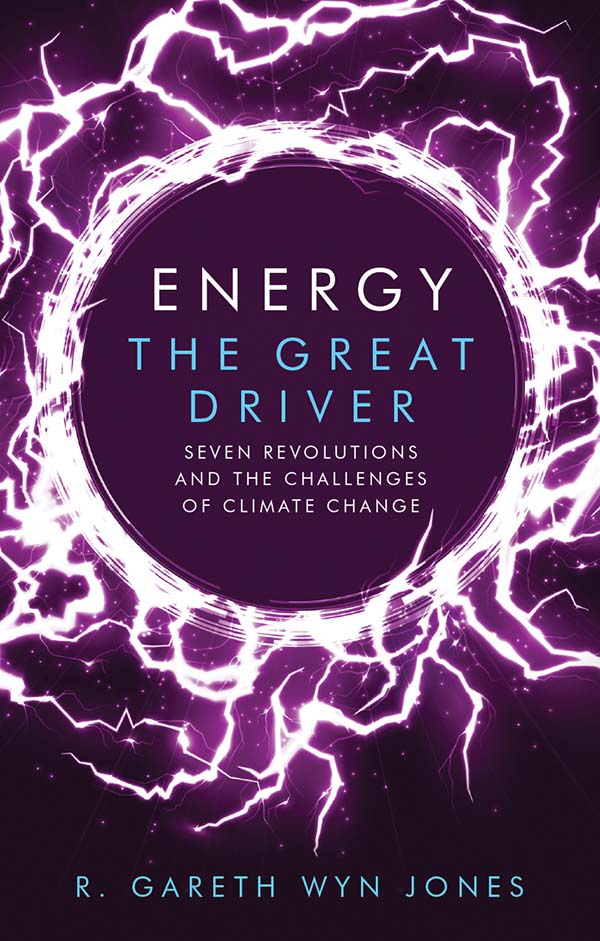Energy, the Great Driver
Seven Revolutions and the Challenges of Climate Change
Author(s) R. Gareth Wyn Jones
Language: English
Genre(s): Science
- October 2019 · 160 pages ·216x138mm
- · Paperback - 9781786834232
- · eBook - pdf - 9781786834249
- · eBook - epub - 9781786834256
This book describes the long-term four billion-year context of anthropogenic climate change, and seeks to explain our inability to respond positively to its challenges. It argues that the availability of energy and the consequential capacity to do work and exert power has, over this time, defined the trajectory of life on planet Earth as well as many of its physiochemical characteristics. Six major historic energy revolutions are recognised – energising of the first living cell; harvesting the Sun’s energy; emergence of complex eukaryotic cells; hominid use of fire/cooking for brains not brawn; agriculture, more food and urban life; fossil fuel bonanza and the industrial revolution – and we are now in the midst of the seventh revolution, responding albeit reluctantly to anthropogenic global climate change.
'Given the huge inequalities in wealth and lifestyle, the energy and consequently CO2 footprints of the jet-setting elite from any country must be at least double, probably, treble, the mean, even the ‘rich’ countries. Energy use permeates all aspects of modern life. This is supplied largely by burning fossil fuels. Regrettably, it appears that the non-catastrophic-resolution of one of humanity’s gravest problems, global warming, is made more difficulty by nature of the homeostatic mechanisms that have historically modulated human behaviour.' - Read more about this on page 14 https://www.booklaunch.london/issue-6
Acknowledgements
List of Illustrations
Prologue
Chapter I: Introduction
Chapter II: The Mysterious Origins of Life
Chapter III: Harvesting the Sun
Chapter IV: A Structural Revolution: Complex Cells
Chapter V: The Hominid Factor
Chapter VI: ‘Food Glorious Food’?
Chapter VII: Fossil Fuels –An Energy Bonanza
Chapter VIII: The Homeostatic Hierarchy.
Chapter IX: Emergent Patterns
Chapter X: The Gathering Storm – Greenhouse Gases: The Effluence of Affluence
Chapter XI: On human behaviour and our social and physical constructs
Chapter XII: Denouement?
Chapter XIII: The Human Factor
Notes
References


